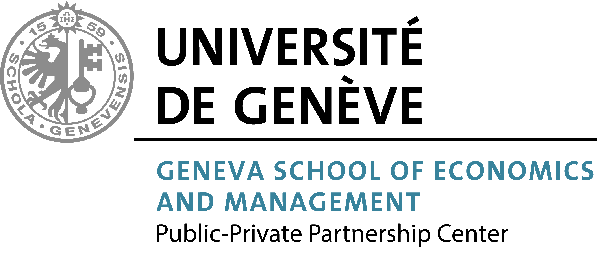Lea Stadtler (PhD) is currently Assistant Professor at the University of Grenoble. Prior to this, she was Research Fellow / Maître Assistante at the Geneva PPP Research Center, University of Geneva. Her research and teaching interests lie at the intersection of public-private partnerships, corporate social responsibility, organization theory, and collaboration in general. From 2008 to 2012, Lea worked as teaching and research assistant at the Chair of Organization & Management at the University of Geneva.
Lea’s dissertation on designing public-private partnerships for development received the SIM Best Dissertation Award 2013 (Social Issue Management division of the Academy of Management) and the SNIS Award 2013 for the Best PhD Thesis in International Studies (Swiss Network for International Studies). Related papers have been published in the European Management Journal, M@n@gement, and the Journal of Corporate Citizenship. In addition, one of her most recent case studies, co-authored with Prof. Probst, has received the EFMD 2012 “Best of the Best Award.”
As visiting researcher at INSEAD, Fontainebleau, and Boston College, Massachusetts, Lea has also been working on other case studies and publications related to cross-sector interaction and organization theory.
Lea graduated from the University of Bamberg in August 2008 with a Masters in European Business Administration. Before, she completed a two-year apprenticeship and formal education program in a German private bank in Hamburg.
You may find more information about Lea by downloading her CV
Contact:
Lea Stadtler
Tel. +41 (0)22 379 8919
Office: UniMail 3324
E-mail: lea.stadtler(at)unige.ch
Dissertation outline:
This thesis explores the challenge of designing successful public-private partnerships (PPPs) for development and contributes to the discourse on partnerships and business engagement in society with four papers. Paper I adopts the company perspective and develops a conceptual framework for aligning the corporate economic interests with the partnership’s social goal.Based on a theoretical analysis, Paper II examines the role which different structures play in handling common design challenges and contributes to building a framework that facilitates more informed and tailored decisions to structure PPPs for development. Papers III and IV are empirical: The former analyzes how partners cope with tensions occurring on the PPP’s boundaries. Building on insights from four case studies, it develops a comprehensive framework for boundary management. Based on a seminal qualitative study of 19 organizations, Paper IV then explores the roles of broker organizations which increasingly facilitate the partnering process of PPPs for development.
